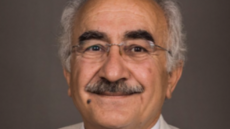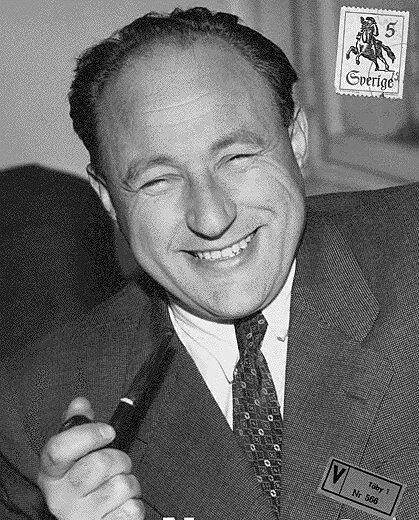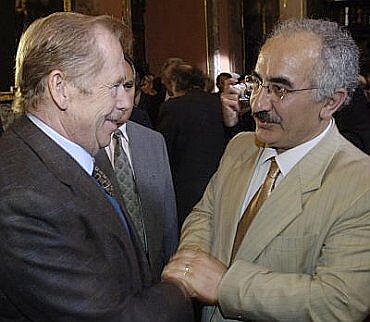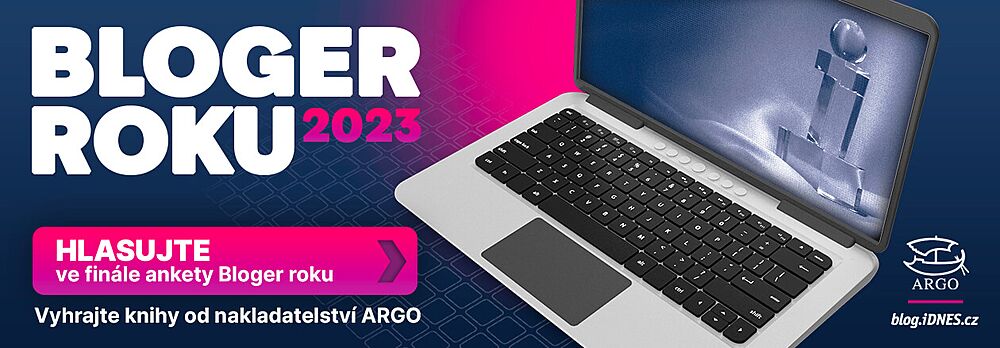Primary human identity
My speech for the prize ceremony in 2006
Uzunoglu - thanks speech
Members of the Jury,Mr. Professor Janouch,
Mr. Václav Havel,
Ladies and Gentlemen,Friends!
Today is perhaps the most difficult day of my life emotionally. To come together in a single place years later with people from several countries and cultures, people who have been with me at various stages of my life in all kinds of circumstances during the past thirty years, to think about a number of other people far from here, who may not be able to be with us today but who, I believe, are with us nevertheless – all of this makes for a powerful experience for me. I mean the people who despite all kinds of allegations, accusations, slurs, and the state-run or state-tolerated terror aimed at me and my friends for twelve years – including the physical attack on Pavel Dostál [1], the robbing of the office of the Czech Helsinki Committee, the torching of my house, the bombs in my garden, and countless other illegal, immoral attacks – never lost faith in me and my struggle for the rule of law and justice in the Czech Republic, and never abandoned me in those truly difficult moments of my life. It is sad to think that my dear teacher, our friend, Professor Rahmen Kassemlou [2] is no longer with us. Just as this country had become a second home for me, so too had it become for him.
At this moment even the fact that I am accepting the prize bearing the name of my colleague Dr František Kriegel [3] is almost too much for me to bear emotionally. I can’t think of any other prize or any other figure I could fully identify with. While I was a young student of medicine, Kriegel became a model of medical ethics, of providing aid to people in need in all circumstances regardless of skin colour or social standing, in all corners of our now very small planet: from Czechoslovakia to Spain, China to India, Burma, and even Cuba! Kriegel was an unflagging fighter for a just world – the way he understood it.
He was not, nor could he have been, a prisoner to absurd nationalist and racist ideologies or pseudo-patriotic emotions. He emphasized the primary identity of the human being over the ideologically tinged identity that so often holds sway. He understood that a human being is first and foremost a human being, not a Czech or German, or a Kurd or a Jew, or a worker or a doctor. It is the tragedy of our European civilization that in its history it ¨has been able to commit so many crimes in the name of a secondary or tertiary identity at the expense of the primary identity.
Not only in his stand as the only Czechoslovak politician to refuse, under brute Soviet pressure, to sign the Moscow Protocol in August 1968, but also later in his dignified, responsible attitude towards the present and future of this country, Kriegel made it sufficiently clear to us, till he breathed his last, that the fate of this country, justice, and law, is not only a matter of “all our countrymen.” He took upon himself more responsibility and risk for this country than “all our good countrymen.” He pointed out the universal nature of pure human values and the need to fight for them.
When I was a student, Anna Martásková, a widow with three dependent children and their grandmother, who became an invalid after a brain operation, sent me and her son, today Professor Pavel Martásek, something of the little she had – schnitzel and cake with a bus driver from Uherský Brod to Prague, so that we had something homemade in the hall of residence. Not for a moment did she ever consider me anything but her fellow countryman! She had an inkling that her sons – Yekta and Pavel – in the remote town of Prague were doing more than just studying. She worried about us like my own mother worried, and she confided her fear to God, and prayed for us. But she never tried to dissuade us from doing what was necessary for a more just world.
Květa and Karel Jech [4] patiently lent an ear to this Kurdish student, heard his unbelievable stories, and gave him advice for life as though he were one of their own children. At their place I was not a foreigner in the presence of “locals”! Jiří Hanzelka [5] tirelessly explained to this naive Kurdish student “how things really work in this world.” Professor ?tirad John [6] gave a helping hand to his student in need, which was caused by a rotten system, and never for a moment thought that this exotic-looking student was not really a Czech. I have time only to mention the names Jarka and Tomáš Vrba! [7]
When I returned to Europe after my stint as a doctor in Iran and Iraq, the Turkish Embassy confiscated my passport. I was left without identity papers and without money. The irony was that in those very days television stations in 32 countries were reporting on my “heroism” in Iraq and Iran. It would have been beneath my dignity to turn to Médecins Sans Frontieres or Kurdish organizations for help. So I slept in the park by the Bundestag. One day I decided to go to the Bundestag to talk to the deputy Klaus Thusing, whom I knew only from a poster in the park. Shortly afterwards I was picked by his assistant, who vouched for me without knowing me at all. Then came the meeting with Thusing, who did everything possible to ensure that I would receive some state support. A year later he became a member of the Kurdish Institute, which I founded. He was, until it was closed down, responsible for Institute finances. It had to do with the struggle for human values.
Never for a moment did our secondary or tertiary identities take precedence over our primary, original identity, over the fact that we are people, fighting for a more just world. That is how I perceived the challenge to take up the struggle here in my second home twelve years ago.
As I wrote to President Václav Havel from Ruzyně prison on 14 September 1995:“Even if they kill me – and they have already tried to so twice (I survived only by chance) – they will not be helping themselves in any way. The unfortunate Kurds will have only another martyr. I am not a product of Roman culture, and will not submit to the judgement of some Nero!” That is why it should have been clear long ago that I shall never give up this struggle, which was assigned to me by destiny, in the interest of law and justice, for which mankind has so long fought bitterly at great cost.
Allow me here to thank my late mother, who instilled in me the proud culture of the Kurds , a culture which does not let us give in to injustice. I thank the jury of the Charta 77 Foundation for awarding me such a precious prize at this stage of my life, a prize that is a clear sign of their support and their identifying with my struggle. My warm thanks go to Professor František Janouch, who was supporting me even back in the 1990s with his letters to prison and has now for several months stood day and night at the head of this bitter struggle, just as he had done in the 1970s and the years that followed. My sincerest thanks go to the state of Germany, which granted me citizenship of the Federal Republic of Germany, and to my friend Bernhard von Grünberg, who brought me the certificate of citizenship all the way to Ruzyně where I was being detained. I express my sincere thanks to the Jechs, the Vrbas, the Šilháns [8], the Dostáls, Petruška Šustrová [9], Jiří Drápela [10], Zdeněk Jičínský [11], and Jaroslav Spurný [12], who stood courageously by my side at those difficult stages of the struggle. Last but not least I thank my wife Monika, who for six years now does “night duty,” so that I can sleep soundly for at least a few hours, and she patiently faces the injustices foisted upon us, and if necessary takes the first available flight to the other side of the continent in order to gather other evidence about crimes committed against law and justice, not only in the Bohemian Lands.
Thank you all.
( Dr.Yekta Uzunoglu )
--------------------------------------------------------------------------------
[1] Pavel Dostál, till his death in 2005, Minister of Culture and the most popular politician in the Czech Republic.
[2] Abdulrahman Kassemlou, a Kurd, Professor at the Prague School of Economics. In 1968 he supported the Prague Spring reform movement and was later deported from the Czechoslovak Socialist Republic. Was Chairman of the Kurdish Democratic Party of Iran, which is a member of the Socialist International. In 1989 he was murdered in Vienna by the Iranian secret service.
[3] František Kriegel (1908–1979), born in Poland, studied medicine at Prague. Went to Spain in 1933, then India, China, Burma, and returned to Prague in 1946, becoming a Czechoslovak citizen in 1948. In the Czechoslovak cabinet at the time of the Soviet-led invasion in August 1968, the only member who resisted Soviet pressure to sign the capitulatory Moscow Protocol.
[4] Květa and Karel Jech, historians, human-rights advocates both in totalitarian Czechoslovakia and after the restoration of democracy.
[5] Jiří Hanzelka, renowned Czech traveller (with Miroslav Zikmund), writer, columnist, a leading figure of the Prague Spring reform movement. Till the “Velvet Revolution” of November-December 1989, was banned from publishing and travelling.
[6] Professor Ctirad John, an important microbiologist and columnist, bravely resisted the pressure of the Czechoslovak Communist Party.
[7] Tomáš Vrba, writer, publisher, columnist, Charter 77 signatory, till the Velvet Revolution was permitted to do only manual labour. After the Velvet Revolution Jarka Vrbová became Head of Scandinavian Studies at Charles University, and Tomáš Vrba became Chairman of the Board of the Czech Press Agency (ČTK).
[8] Libuše Šilhánová, PhDr., human-rights advocate, in totalitarian Czechoslovakia she was a spokesman of the Charter 77 human-rights movement and was imprisoned several times. After the Velvet Revolution, she was Chairman of the Czech Helsinki Committee, and received the State Prize, 1st degree. Professor Věněk Šilhán, was Secretary of the Central Committee of the Czechoslovak Communist Party in 1968 and an initiator of the Prague Spring reform movement. He is now Chairman of the Board of the Preciosa company.
[9] Petruška Šustrová, human-rights advocate, Charter 77 signatory, after the Velvet Revolution became Deputy Minister of the Interior. Now a columnist and writer.
[10] Jiří Drápela, after the Velvet Revolution was for years a member of the Czech Parliament. Thanks to his repeated interpellations in the 1990s exposed part of the crime committed by the Czech Police against Yekta Uzunoglu.
[11] Professor Zděnek Jičínský, a leading authority on law in the Czech Republic, a member of parliament for sixteen years. After the Velvet Revolution headed a commission that framed the new Czechoslovak constitution.
[12] Jaroslav Spurný, journalist, human-rights advocate, exposed another part of the crime committed against
Yekta Uzunoglu.
Yekta Uzunoglu
Rukojmí - 1 - Demokratická výměna kus za kus

Rukojmí - institut, který patrně začal existovat společně s lidskou civilizací. Ani božské, ale ani lidské zákony nedokázaly tento institut odstranit ze života naší jinak lidské společnosti.
Yekta Uzunoglu
Rukojmí - 2: Pragmatická demokracie a Kurdové jako rukojmí

Dne 18.09.2005 se měly konat v SRN federální volby. Schröder, jako kandidát do funkce kancléře v dalším období, se bál prohry a potřeboval hlasy Turků žijících v SRN majících dvojité občanství.
Yekta Uzunoglu
Rukojmí – 4 - Krajsky,Tigrid, Kohout a Charta 77...

Bylo to někdy v srpnu roku 1979, kdy jsem se po dlouhé konzultaci se svými přáteli z řad Charty 77 rozhodl ve správný čas, aniž bych byl zadržen, dostat do domu Prof. Jiřího Hájka v Zahradním Městě v Praze.
Yekta Uzunoglu
Rukojmí 3 - Případ turecký Renault

Psal se rok 1968, kdy se francouzský státní podnik Renault a turecká společnost OYAK patřící výlučně vojákům dohodli a založili společnost Renault Turecko a následně zahájili společnou výrobu osobních automobilů .
Yekta Uzunoglu
A Shameful case

On Sunday, February 25, 2018, as a bolt of the blue, tens of millions (maybe hundreds of millions) of people were hit by the report of detention of Salih Muslim,
| Další články autora |
Atentát na Fica. Slovenského premiéra postřelili
Slovenského premiéra Roberta Fica ve středu postřelili. K incidentu došlo v obci Handlová před...
Fico je po operaci při vědomí. Ministr vnitra mluví o občanské válce
Slovenský premiér Robert Fico, který byl terčem atentátu, je po operaci při vědomí. S odkazem na...
Drahé a rezavé, řeší Ukrajinci zbraně z Česka. Ani nezaplatili, brání se firma
Premium České zbrojařské firmy patří dlouhou dobu mezi klíčové dodavatele pro ukrajinskou armádu i tamní...
Fica čekají nejtěžší hodiny, od smrti ho dělily centimetry, řekl Pellegrini
Zdravotní stav slovenského premiéra Roberta Fica je stabilizovaný, ale nadále vážný, řekl po...
Pozdrav z lůžka. Expert Antoš posílá po srážce s autem palec nahoru
Hokejový expert České televize Milan Antoš, kterého v neděli na cestě z O2 areny srazilo auto, se...
Při hádce udeřil družku, upadla hlavou na skříň. Za její smrt dostal 5,5 roku
Krajský soud v Hradci Králové potrestal Zdeňka K. pěti a půl lety vězení za facku, po které loni v...
Sedmnáctiletá dívka vzala na vycházku dvouměsíční dceru, do ústavu se nevrátily
Pelhřimovští policisté pátrají po sedmnáctileté Stefanii Stojkové a jejím malém dítěti. V pátek se...
Zelenskému skončil mandát, Moskva v tom vidí šanci k destabilizaci země
Ukrajinskému prezidentovi Volodymyrovi Zelenskému v pondělí sice vypršel pětiletý mandát, ale...
Blíží se volby do Evropského parlamentu. Kde a jak získat voličský průkaz
Volby do Evropského parlamentu začínají za dva týdny, již nyní je ale možné žádat o voličské...

Rozdáváme tělové mléko Kind od Mádara ZDARMA
Kosmetiku Mádara určitě od nás už znáte – potkat jste je mohli veletrhu FOR KIDS v Praze nebo také v nedávném v uživatelském testování, kde jsme...
- Počet článků 320
- Celková karma 0
- Průměrná čtenost 725x
https://www.facebook.com/MUDrYektaUzunoglu
https://twitter.com/YektaUzunoglu?
MUDr. Yekta Uzunoglu (kurdským jménem Yekta Geylanî, * 10. května 1953 Silvan, Turecko) je kurdský lékař a podnikatel s arménskými kořeny (mezi jeho předky byli turečtí Arméni, oběti Arménské genocidy na konci první světové války).[zdroj?] Mimo svých profesí se celoživotně angažuje jako kurdský aktivista (upozorňování na potlačování kurdské menšiny v Turecku, Íránu a Iráku), spisovatel a překladatel: Je například autorem překladů částí Bible a děl Karla Čapka do kurdštiny, a naopak kurdské poezie i prózy do češtiny a němčiny. V roce 2006 obdržel cenu Františka Kriegla.Od roku 1996 německé občanství.






